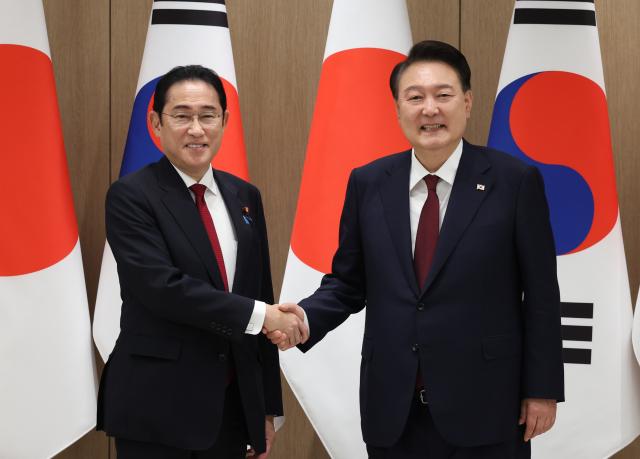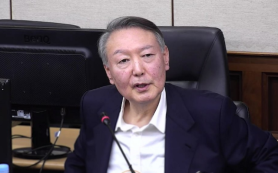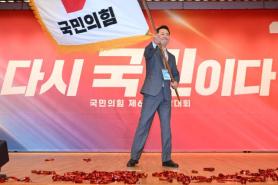
SEOUL, May 26 (AJU PRESS) - Korean President Yoon Suk Yeol and Japanese Prime Minister Kishida Fumio met in Seoul on Sunday, marking their first encounter in six months since the Asia-Pacific Economic Cooperation (APEC) summit in November last year. During this pivotal meeting, the leaders of both nations pledged to bolster bilateral cooperation, with a particular focus on initiating a consultative group to facilitate dialogue and collaboration in the hydrogen and resource sector.
As part of the Korea-Japan-China summit, President Yoon and Prime Minister Kishida reaffirmed their dedication to preparing for the upcoming 60th anniversary of diplomatic relations between Korea and Japan next year, aiming to fortify their longstanding ties further.
President Yoon expressed contentment with the progress made in bilateral exchanges over the past year since the resumption of "shuttle diplomacy" in March last year, following a 12-year hiatus. He highlighted the restoration of intergovernmental consultations and anticipated a surge in personnel exchanges this year, exceeding the 2018 record of 10.51 million. Stressing the significance of these achievements, he emphasized the need to lay the groundwork for substantial advancements in Korea-Japan relations in 2025.
Prime Minister Kishida echoed President Yoon's sentiments regarding the 60th anniversary of diplomatic normalization between Korea and Japan, underlining the criticality of closer cooperation in upholding a free and open Indo-Pacific and tackling global challenges. Notably, he acknowledged the milestone of their 10th face-to-face meeting and expressed his commitment to continuing trust-based shuttle diplomacy.
During the approximately 50-minute dialogue, Yoon and Kishida delved into cooperation across various sectors: energy, economy, security, small and medium-sized enterprises (SMEs), startups, information and communication technology (ICT), and advanced technology. They agreed to establish a dialogue mechanism for hydrogen and resource cooperation, aimed at fostering discussions on hydrogen, ammonia, and resource-related issues while bolstering supply chain collaboration.
Furthermore, the leaders pledged to further enhance cooperation between Korea and Japan, as well as trilateral cooperation with the United States, amidst ongoing concerns regarding North Korea's violations of UN Security Council sanctions and its nuclear armament pursuits. They also committed to exploring avenues for expanding youth exchanges, such as studying abroad and internships, while maintaining communication on increasing cooperation to protect overseas nationals.
Copyright ⓒ Aju Press All rights reserved.




